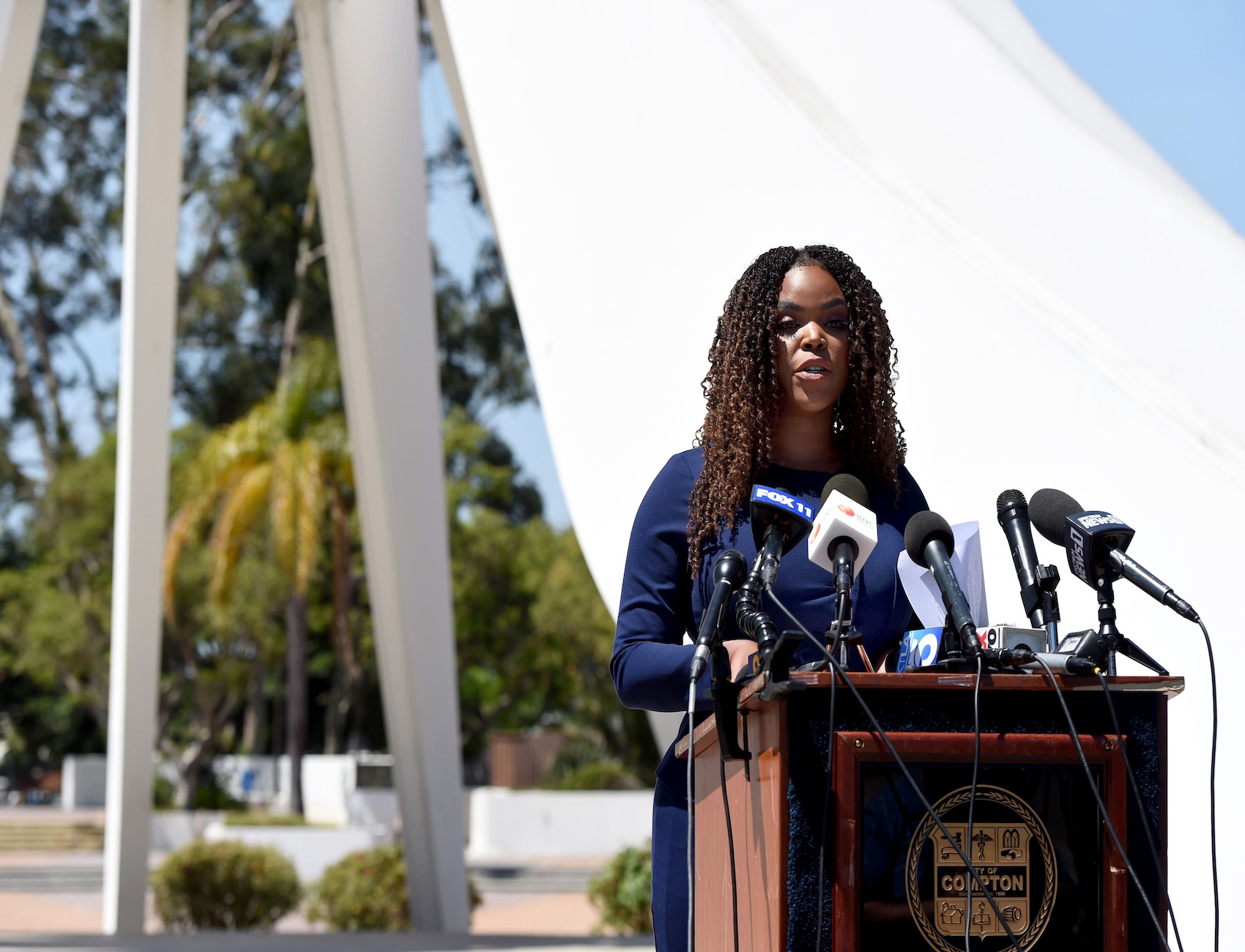Compton Joins the Growing Number of U.S. Cities to Launch a Guaranteed Income Program
The California city began distributing out up to $600 monthly to low-income residents.

The term “government assistance,” at least in the U.S., tends to conjure up images of long lines outside municipal buildings, byzantine tax-rebate systems impossible for the average person to navigate, or Bill Clinton talking about “welfare reform.”
Last week, Compton, California, made government assistance less complicated. On Jan. 21, the city distributed the first payments of the Compton Pledge program—officials simply sent money to some of the city’s residents.
An initiative of Mayor Aja Brown, the program is expected to hand out between $300 and $600 per month to a maximum of 800 Compton residents using prepaid debit cards or through Venmo for at least the next two years. (Compton Pledge is funded by a pool of anonymous donors, not tax dollars.) Unlike unemployment insurance or food assistance programs, residents don’t need to report how they spend the money or comply with any standards to stay enrolled in the program.
Once the Compton Pledge is fully running, it will be one of America’s largest experiments with guaranteed income—the economic tool whereby the government provides money to its citizens regardless of their income, age, or employment status. Though there is certainly debate over whether guaranteed income works better than other forms of government assistance, the idea has been endorsed by all sorts of public figures, from Martin Luther King Jr. to Elon Musk. Now, at least 25 U.S. cities are experimenting with basic-income programs.
“Compton is systematically under-resourced, but at the same time it has visionary leadership, young leadership, and the determination to set a model for what reinvesting in communities can really look like,” Nika Soon-Shiong, a Compton Pledge co-director, told The Appeal.
Los Angeles County, where Compton is located, is currently suffering through the worst COVID-19 outbreak of any major American urban center. Nearly 1.1 million residents have contracted the disease and almost 16,000 have died. Earlier this month, emergency medical professionals were told to stop sending patients to hospitals if they had little chance of survival, because intensive care units were full and resources were scarce. As of Jan. 15, more than 2,700 corpses were being kept in storage, and county officials decided to relax air quality rules to allow crematoriums to burn bodies more quickly.
Despite the horrific outbreak, Governor Gavin Newsome rescinded the state’s stay-at-home order on Monday. Outdoor dining is set to reopen in Los Angeles County soon and malls remain open.
The pandemic has hit Compton especially hard, wreaking havoc on an already economically fragile community where, as of 2019, one in five residents lived below the poverty line. Black residents—who’d historically been forced into the neighborhood because of racist housing laws over the last half-century—have been pushed out in recent years. As of December, Latinx residents were contracting COVID-19 at double the rate of white residents throughout the county.
But even before LA County reached this dire point, Brown joined a coalition called the Mayors for Guaranteed Income, which is sponsored by Twitter CEO Jack Dorsey and led by Michael Tubbs, a former Stockton, California, mayor who ran a guaranteed-income pilot program in his city in 2019. In October, Brown announced that she’d raised funds from a group of anonymous donors and would begin sending checks to a “pre-verified” pool of low-income Compton residents. (Brown did not respond to requests for comment from The Appeal.)
“I recognized that there’s a need for additional income, especially with the pandemic resulting in record high numbers of unemployment throughout the entire country,” Brown told the Los Angeles Times in October. “This is a great opportunity to address inequalities for Black and brown people and also additional opportunities for upward mobility.”
Soon-Shiong told The Appeal she has yet to hear any complaints or reports of residents missing their payments, which she considered a win.
“I think in some ways, success is not having any feedback,” she said on the first day of the program. “Everything worked smoothly.”
